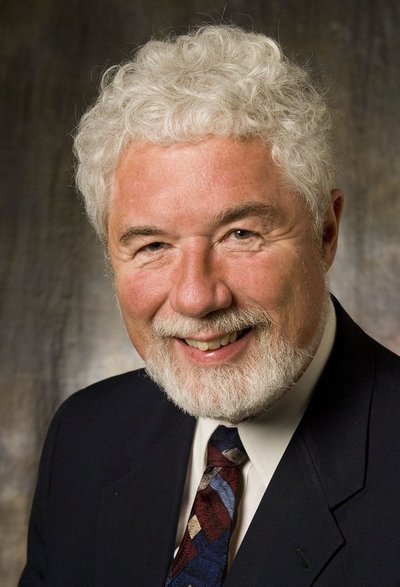October 5, 2006
UW prof to chair NOAA’s science advisory board
David Fluharty, a UW marine affairs expert, has just been named to chair the science advisory board of the National Oceanic and Atmospheric Administration, the federal agency charged with conducting research about and management of the nation’s ocean and atmospheric resources. NOAA’s $3.4 billion budget pays for such things as weather and climate prediction, fisheries management and coastal area protection and restoration.
“I look forward to Dr. Fluharty’s leadership to continue to provide the best information and guidance of scientific issues critical to NOAA’s missions,” said retired Navy Vice Adm. Conrad Lautenbacher, undersecretary of commerce for oceans and atmosphere and NOAA administrator, who was in Seattle Oct. 4.
The science advisory board chaired by Fluharty is the only committee advising Lautenbacher on long- and short-term strategies for NOAA’s ecosystem research and science enterprise.
Fluharty, who was appointed to be a member of the science advisory board in 2005, already shepherded a team developing advice on how NOAA can implement an ecosystem approach to management over the next several decades. The team’s recommendations have been approved by the board and are being submitted to NOAA for consideration.
“The move toward using an ecosystem approach to management was a major NOAA initiative that followed recommendations from the Ocean Policy Commission,” says Tom Leschine, director of the UW School of Marine Affairs. “Part of the rationale behind naming Dave as chairman is to ensure
continuity in implementing the recommendations of the panel he led.”
Other recent efforts by the science advisory board include an assessment of hurricane intensity and climate change, and indepth reviews of NOAA’s cooperative efforts with other institutions. Just completed, for example, was a review of the Joint Institute for the Study of Atmosphere and Oceans, a NOAA-UW collaboration based here at the UW.
The 15-member board is composed of eminent scientists, engineers, resource managers and educators, according to NOAA. Members are appointed by Lautenbacher to serve a three-year term with the possibility of reappointment.
Fluharty is the Wakefield Professor of Ocean and Fisheries Science at the UW, where he has been an associate professor since 1998. He began his career at the University as a post-doctoral student in 1976, and served as a research associate and research associate professor. His teaching and research interests focus on natural-resource policy and management at national and international levels, fisheries, marine protected areas, regional effects of climate change and implementation of ecosystem approaches to management.
In the past he served nine years on the North Pacific Fishery Management Council, which managed federal fisheries off Alaska.

